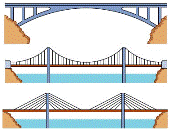Civil and Environmental Engineering, Department of

Department of Civil and Environmental Engineering: Faculty Publications
Document Type
Article
Date of this Version
2014
Citation
International Journal of Protective Structures 5:4 (2014), pp. 417-433.
doi: 10.1260/2041-4196.5.4.417
Abstract
Due to the increased frequency, scale, and danger of malicious attacks carried out by Vehicle Borne Improvised Explosive Devices (VBIEDs), anti-ram bollards have become a key element in the protection of critical structures. This study focused on the evaluation of above grade load sharing members in a steel anti-ram bollard system in an attempt to develop efficient load sharing mechanisms that improve the structure’s ability to resist vehicle impacts, while concurrently remaining aesthetically pleasing to the general public. A computational assessment was completed using calibrated LS-DYNA finite element models to determine if effective load sharing member configurations and designs could be established so that further optimization of the entire anti-ram system was possible. It was determined that efficient above-grade load sharing could improve the crashworthiness of the anti-ram bollard systems that were studied. Of the configurations that were investigated, the most effective load sharing member design was a single HSS member connecting the vertical bollards near their exposed free ends.


Comments
Copyright © 2014 SAGE Publishing. Used by permission.